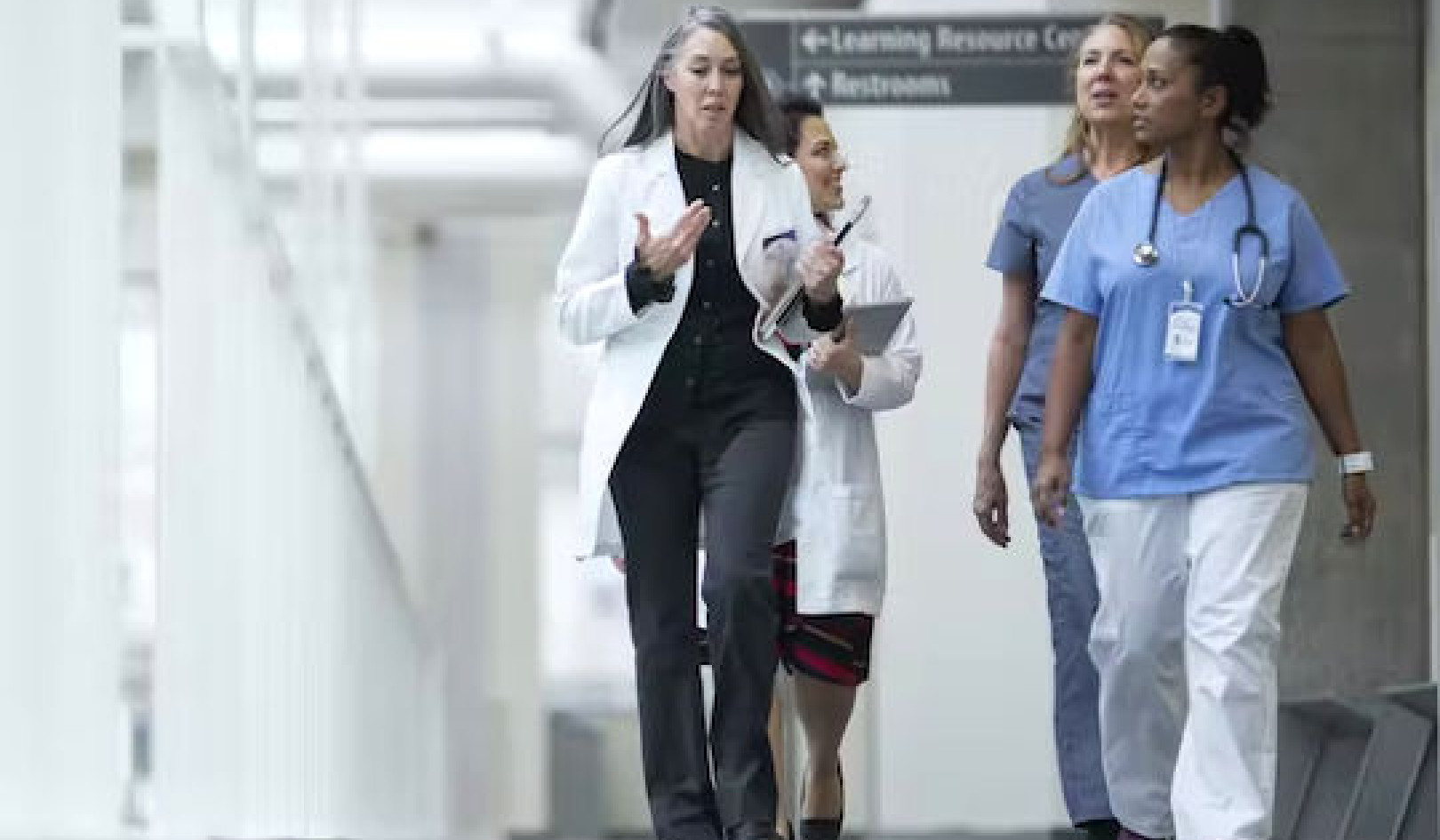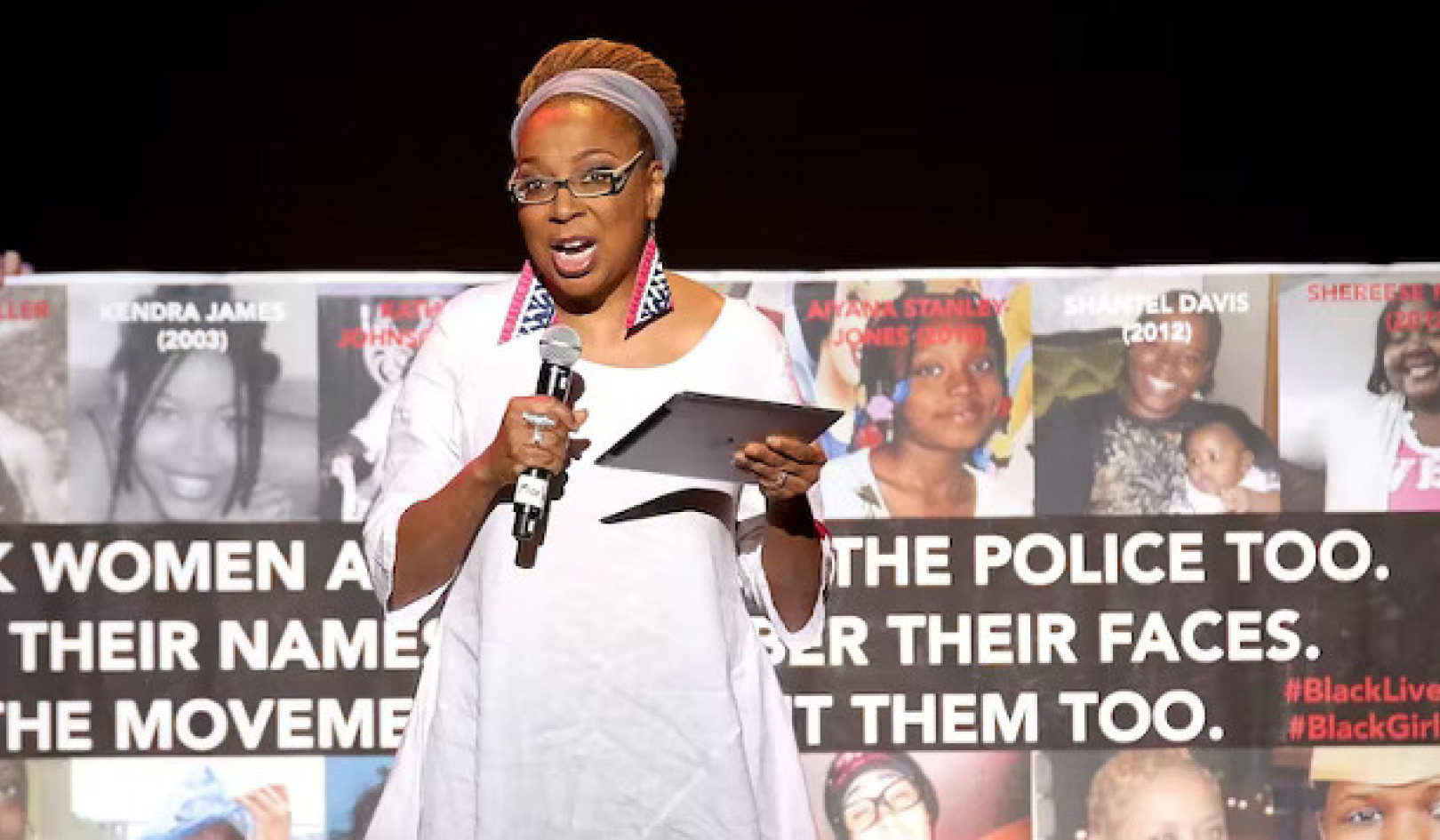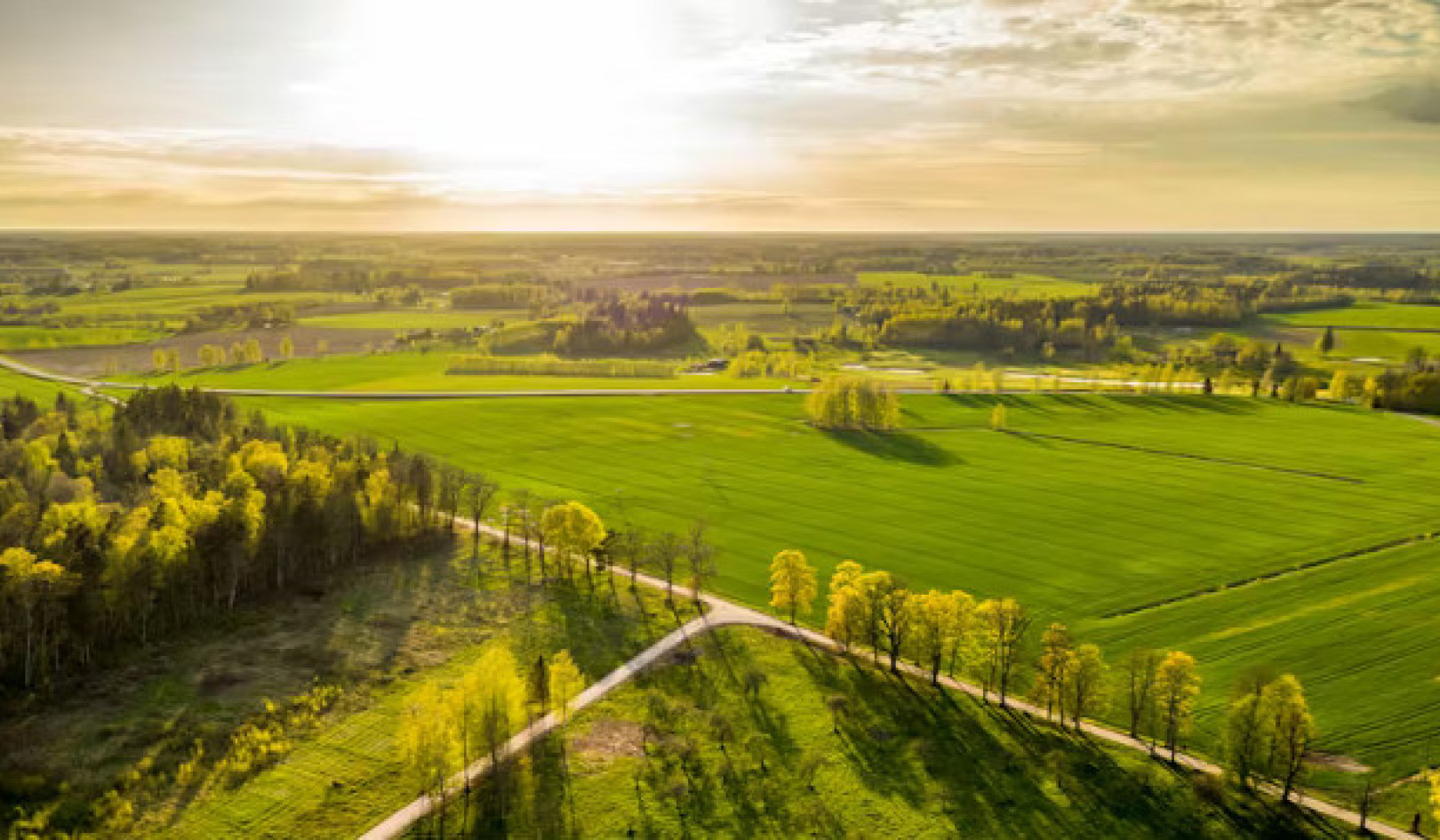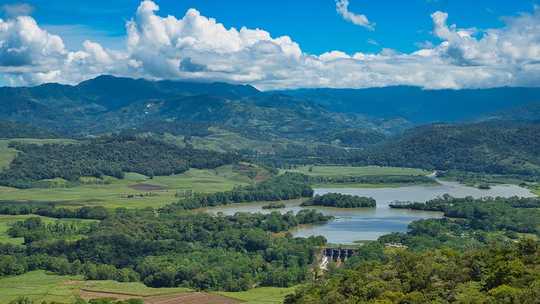 Hydroelectric power has helped Costa Rica ditch fossil fuels. John E Anderson / shutterstock
Hydroelectric power has helped Costa Rica ditch fossil fuels. John E Anderson / shutterstock
The climate breakdown continues. Over the past year, The Conversation has covered fires in the Amazon, melting glaciers in the Andes and Greenland, record CO? emissions, and temperatures so hot they’re pushing the human body to its thermal limits. Even the big UN climate talks were largely disappointing.
But climate researchers have not given up hope. We asked a few Conversation authors to highlight some more positive stories from 2019.
Costa Rica offers us a viable climate future
Heather Alberro, associate lecturer in political ecology, Nottingham Trent University
After decades of climate talks, including the recent COP25 in Madrid, emissions have only continued to rise. Indeed, a recent UN report noted that a fivefold increase in current national climate change mitigation efforts would be needed to meet the 1.5? limit on warming by 2030. With the radical transformations needed in our global transport, housing, agricultural and energy systems in order to help mitigate looming climate and ecological breakdown, it can be easy to lose hope.
However, countries like Costa Rica offer us promising examples of the “possible”. The Central American nation has implemented a refreshingly ambitious plan to completely decarbonise its economy by 2050. In the lead-up to this, last year with its economy still growing at 3%, Costa Rica was able to derive 98% of its electricity from renewable sources. Such an example demonstrates that with sufficient political will, it is possible to meet the daunting challenges ahead.
Financial investors are cooling on fossil fuels
Richard Hodgkins, senior lecturer in physical geography, Loughborough University
Movements such as 350.org have long argued for fossil fuel divestment, but they have recently been joined by institutional investors such as Climate Action 100+, which is using the influence of its US$35 trillion of managed funds, arguing that minimising climate breakdown risks and maximising renewables’ growth opportunities are a fiduciary duty.
Moody’s credit-rating agency recently flagged ExxonMobil for falling revenues despite rising expenditure, noting: “The negative outlook also reflects the emerging threat to oil and gas companies’ profitability […] from growing efforts by many nations to mitigate the impacts of climate change through tax and regulatory policies.”
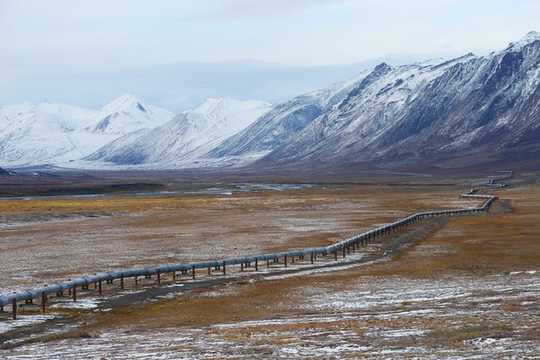 An oil pipeline in northern Alaska. saraporn / shutterstock
An oil pipeline in northern Alaska. saraporn / shutterstock
A more adverse financial environment for fossil fuel companies reduces the likelihood of new development in business frontier regions such as the Arctic, and indeed, major investment bank Goldman Sachs has declared that it “will decline any financing transaction that directly supports new upstream Arctic oil exploration or development”.
We are getting much better at forecasting disaster
Hannah Cloke, professor of hydrology, University of Reading
In March and April 2019, two enormous tropical cyclones hit the south-east coast of Africa, killing more than 600 people and leaving nearly 2 million people in desperate need of emergency aid.
There isn’t much that is positive about that, and there’s nothing new about cyclones. But this time scientists were able to provide the first early warning of the impending flood disaster by linking together accurate medium-range forecasts of the cyclone with the best ever simulations of flood risk. This meant that the UK government, for example, set about working with aid agencies in the region to start delivering emergency supplies to the area that would flood, all before Cyclone Kenneth had even gathered pace in the Indian Ocean.
We know that the risk of dangerous floods is increasing as the climate continues to change. Even with ambitious action to reduce greenhouse gases, we must deal with the impact of a warmer more chaotic world. We will have to continue using the best available science to prepare ourselves for whatever is likely to come over the horizon.
Local authorities across the world are declaring a ‘climate emergency’
Marc Hudson, researcher in sustainable consumption, University of Manchester
More than 1,200 local authorities around the world declared a “climate emergency” in 2019. I think there are two obvious dangers: first, it invites authoritarian responses (stop breeding! Stop criticising our plans for geoengineering!). And second, an “emergency” declaration may simply be a greenwash followed by business-as-usual.
In Manchester, where I live and research, the City Council is greenwashing. A nice declaration in July was followed by more flights for staff (to places just a few hours away by train), and further car parks and roads. The deadline for a “bring zero-carbon date forward?” report has been ignored.
But these civic declarations have also kicked off a wave of civic activism, as campaigners have found city councils easier to hold to account than national governments. I’m part of an activist group called “Climate Emergency Manchester” – we inform citizens and lobby councillors. We’ve assessed progress so far, based on Freedom of Information Act requests, and produced a “what could be done?” report. As the council falls further behind on its promises, we will be stepping up our activity, trying to pressure it to do the right thing.
Radical climate policy goes mainstream
Dénes Csala, lecturer in energy system dynamics, Lancaster University
Before the 2019 UK general election, I compared the Conservative and Labour election manifestos, from a climate and energy perspective. Although the party with the clearly weaker plan won eventually, I am still stubborn enough to be hopeful with regard to the future of political action on climate change.
For the first time, in a major economy, a leading party’s manifesto had at its core climate action, transport electrification and full energy system decarbonisation, all on a timescale compatible with IPCC directives to avoid catastrophic climate change. This means the discussion that has been cooking at the highest levels since the 2015 Paris Agreement has started to boil down into tangible policies.
Young people are on the march!
Mark Maslin, professor of earth system science, UCL
In 2019, public awareness of climate change rose sharply, driven by the schools strikes, Extinction Rebellion, high impact IPCC reports, improved media coverage, a BBC One climate change documentary and the UK and other governments declaring a climate emergency. Two recent polls suggest that over 75% of Americans accept humans have caused climate change.
Empowerment of the first truly globalised generation has catalysed this new urgency. Young people can access knowledge at the click of a button. They know climate change science is real and see through the deniers’ lies because this generation does not access traditional media – in fact, they bypass it.
The awareness and concern regarding climate change will continue to grow. Next year will be an even bigger year as the UK will chair the UN climate change negotiations in Glasgow – and expectation are running high.![]()
About The Authors
Heather Alberro, Associate Lecturer/PhD Candidate in Political Ecology, Nottingham Trent University; Dénes Csala, Lecturer in Energy Storage Systems Dynamics, Lancaster University; Hannah Cloke, Professor of Hydrology, University of Reading; Marc Hudson, Researcher in Sustainable Consumption, University of Manchester; Mark Maslin, Professor of Earth System Science, UCL, and Richard Hodgkins, Senior Lecturer in Physical Geography, Loughborough University
This article is republished from The Conversation under a Creative Commons license. Read the original article.
Related Books
Climate Adaptation Finance and Investment in California
by Jesse M. Keenan This book serves as a guide for local governments and private enterprises as they navigate the unchartered waters of investing in climate change adaptation and resilience. This book serves not only as a resource guide for identifying potential funding sources but also as a roadmap for asset management and public finance processes. It highlights practical synergies between funding mechanisms, as well as the conflicts that may arise between varying interests and strategies. While the main focus of this work is on the State of California, this book offers broader insights for how states, local governments and private enterprises can take those critical first steps in investing in society’s collective adaptation to climate change. Available On Amazon
This book serves as a guide for local governments and private enterprises as they navigate the unchartered waters of investing in climate change adaptation and resilience. This book serves not only as a resource guide for identifying potential funding sources but also as a roadmap for asset management and public finance processes. It highlights practical synergies between funding mechanisms, as well as the conflicts that may arise between varying interests and strategies. While the main focus of this work is on the State of California, this book offers broader insights for how states, local governments and private enterprises can take those critical first steps in investing in society’s collective adaptation to climate change. Available On Amazon
Nature-Based Solutions to Climate Change Adaptation in Urban Areas: Linkages between Science, Policy and Practice
by Nadja Kabisch, Horst Korn, Jutta Stadler, Aletta Bonn This open access book brings together research findings and experiences from science, policy and practice to highlight and debate the importance of nature-based solutions to climate change adaptation in urban areas. Emphasis is given to the potential of nature-based approaches to create multiple-benefits for society.
This open access book brings together research findings and experiences from science, policy and practice to highlight and debate the importance of nature-based solutions to climate change adaptation in urban areas. Emphasis is given to the potential of nature-based approaches to create multiple-benefits for society.
The expert contributions present recommendations for creating synergies between ongoing policy processes, scientific programmes and practical implementation of climate change and nature conservation measures in global urban areas. Available On Amazon
A Critical Approach to Climate Change Adaptation: Discourses, Policies and Practices
by Silja Klepp, Libertad Chavez-Rodriguez This edited volume brings together critical research on climate change adaptation discourses, policies, and practices from a multi-disciplinary perspective. Drawing on examples from countries including Colombia, Mexico, Canada, Germany, Russia, Tanzania, Indonesia, and the Pacific Islands, the chapters describe how adaptation measures are interpreted, transformed, and implemented at grassroots level and how these measures are changing or interfering with power relations, legal pluralismm and local (ecological) knowledge. As a whole, the book challenges established perspectives of climate change adaptation by taking into account issues of cultural diversity, environmental justicem and human rights, as well as feminist or intersectional approaches. This innovative approach allows for analyses of the new configurations of knowledge and power that are evolving in the name of climate change adaptation. Available On Amazon
This edited volume brings together critical research on climate change adaptation discourses, policies, and practices from a multi-disciplinary perspective. Drawing on examples from countries including Colombia, Mexico, Canada, Germany, Russia, Tanzania, Indonesia, and the Pacific Islands, the chapters describe how adaptation measures are interpreted, transformed, and implemented at grassroots level and how these measures are changing or interfering with power relations, legal pluralismm and local (ecological) knowledge. As a whole, the book challenges established perspectives of climate change adaptation by taking into account issues of cultural diversity, environmental justicem and human rights, as well as feminist or intersectional approaches. This innovative approach allows for analyses of the new configurations of knowledge and power that are evolving in the name of climate change adaptation. Available On Amazon
From The Publisher:
Purchases on Amazon go to defray the cost of bringing you InnerSelf.comelf.com, MightyNatural.com, and ClimateImpactNews.com at no cost and without advertisers that track your browsing habits. Even if you click on a link but don't buy these selected products, anything else you buy in that same visit on Amazon pays us a small commission. There is no additional cost to you, so please contribute to the effort. You can also use this link to use to Amazon at any time so you can help support our efforts.




















